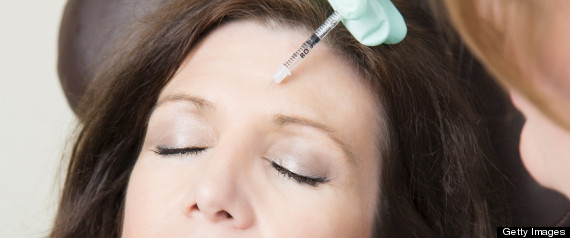***
 |
| Image Source: psychcentral.com |
A new study discovers that many veterans receive a diagnosis of generalized anxiety rather than a more accurate, specific diagnosis of their condition.
Accordingly, veterans who suffer from anxiety may not get appropriate treatment for their particular condition.
Lead researcher Terri L. Barrera, Ph.D., and her colleagues at the Michael E. DeBakey VA Medical Center in Houston looked at data from Veterans Health Administration outpatient records for patients with anxiety.
As reported in the journal General Hospital Psychiatry, the researchers discovered 38 percent of the sample was diagnosed with anxiety non-specified (NOS).
The research team expected to find that a diagnosis of anxiety NOS disorder was only used temporarily until a more specific diagnosis was decided on. That was not the case.
“Unfortunately, our results suggested that only 12 percent of the patients with an initial anxiety NOS diagnosis received a specific anxiety diagnosis within the year,” said Barrera.
Anxiety might be related to post-traumatic stress or be a symptom of generalized anxiety disorder, panic disorder, obsessive-compulsivedisorder, social anxiety disorder or a specific phobia.
While treatments for various anxiety disorders are similar, usually including medication and behavioral therapy, the approach might differ.
Veterans with a specific anxiety diagnosis were more likely to receive mental health services.
From 60 to 67 percent of those with the most frequently diagnosed specific anxiety disorders received treatment, while only 32 percent of patients with a non-specific diagnosis received mental health services during the year following diagnosis.
“While anxiety is a problem for all who suffer from it, getting the correct treatment is especially important for veterans. Within any given year, 18 percent of the general population may be diagnosed with anxiety. For veterans, it’s 33 percent.
“Veterans are twice as likely to experience clinical levels of anxiety than the general public,” said Barrera.
“Anxiety disorders can be devastating, and are associated with increased disability and risk for suicide.”
Unfortunately, anxiety disorders may go unrecognized and untreated, particularly in primary care settings.
Primary care providers only detect 50 percent of patients with mental health problems, note the researchers. Even fewer are adequately treated or referred for specific mental health services.
“It’s important to do regular screening in any high-risk population,” said Shirley Glynn, Ph.D., a research psychologist and co-director of UCLA’s Welcome Back Veterans Family Resilience Center.
“We want to be more diligent and do screening early so we can offer intervention if needed, so the condition won’t become more chronic.”
Anxiety NOS is frequently used as a temporary diagnosis with the expectation that the health care provider will eventually make a more specific diagnosis at a later date.
One problem with not making a specific diagnosis is that primary care doctors may not know who to refer patients to, notes Glynn.
“Right now there are several models to improve treatment,” said Glynn.
“One involves having a mental health professional located in a primary care clinic, such as a psychiatric nurse, a psychologist or a psychiatrist who is available in a timely manner to provide a consultation.
“Another possibility is to utilize short screening questionnaires with patients before they see a physician and then these can be reviewed with the doctor.”
***
More topics on mental health can be read in this Dr. Gary Zomalt blog site.






